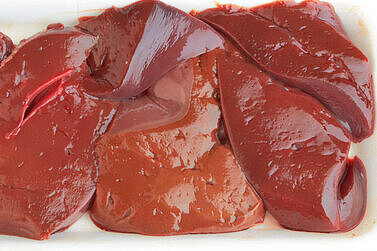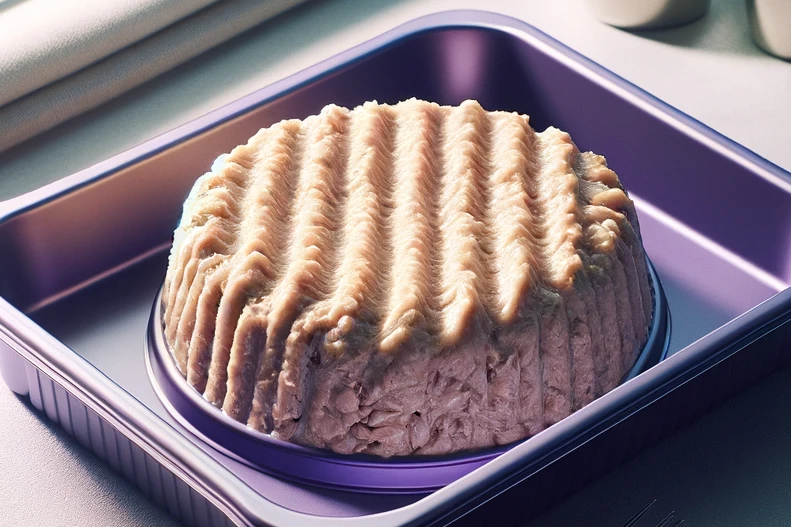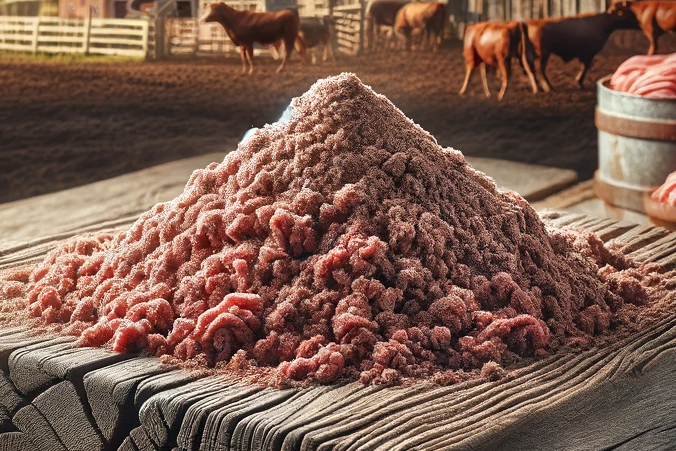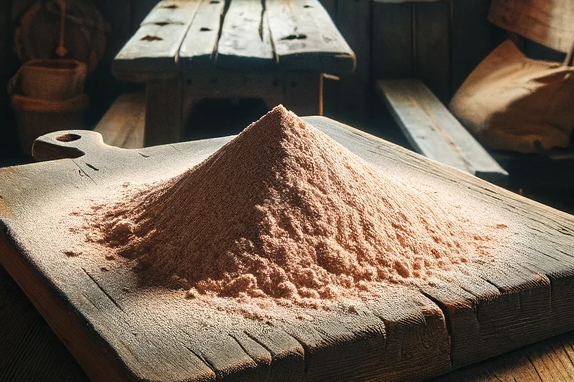Fish hydrolyzate
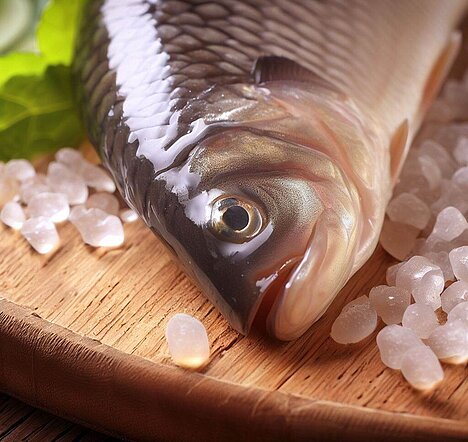
What is fish hydrolyzate?
Fish hydrolyzate is a product obtained from fish or fish by-products. The fish proteins are broken down by enzymes or acids into smaller building blocks known as peptides. These peptides are easier to digest and have a high biological value, i.e. they contain many essential amino acids that the body cannot produce itself.
Fish hydrolysate is often used as a protein source or flavor enhancer in dog food. It can be made from various types of fish such as salmon, herring or mackerel. Depending on the manufacturing process, fish hydrolysate can be in liquid or powder form.
What are the benefits of fish oil for your dog?
Fish hydrolyzate has several benefits for your dog, which you can read about here:
- It's hypoallergenic: Fish hydrolysate can be a good alternative for dogs who suffer from food allergies or intolerances. As the proteins are broken down into small peptides, they are not recognized as foreign by the immune system and do not trigger allergic reactions.
- It is rich in nutrients: Fish hydrolysate not only contains high-quality protein, but also many other nutrients that are important for dogs. These include omega-3 fatty acids, for example, which have an anti-inflammatory effect and promote healthy skin and coat. Fish oil also contains vitamins, minerals and trace elements such as vitamins A, D and E, iron, zinc and iodine.
- It is tasty: fish hydrolysate has an intense fishy taste that many dogs like. It can therefore also be used as an appetite stimulant or reward.
What are the disadvantages of fish oil for my dog?
Fish hydrolyzate also has some disadvantages, which you can read about here:
- It's expensive: fish hydrolysate is a relatively expensive product because it has a high degree of processing. You should therefore make sure that you buy a high-quality fish oil that comes from sustainable fishing and does not contain any harmful substances.
- It is not suitable for all dogs: Although fish oil is hypoallergenic, it can cause digestive problems in some dogs. This is because fish hydrolysate is very high in protein and some dogs cannot cope with this. If your dog is sensitive to fish or has kidney disease, you should not give him fish oil.
- It is not balanced: Fish hydrolysate is not a complete food for your dog. It should only ever be used as a supplement to a balanced diet. You should make sure that your dog gets enough other sources of protein and does not eat too much fish oil.
Fish hydrolysate is an interesting product that can bring many benefits to your dog. It can support your dog's digestion, skin, coat, immune system and health. However, you should also consider the possible disadvantages and always feed the right amount.
If you notice any signs of hypersensitivity or poisoning in your dog, you should see your vet immediately. We are not a substitute for a vet, but we try to be as accurate as possible. Every dog reacts differently and we recommend you get a second opinion or consult your vet if in doubt.
Stay healthy and take good care of your four-legged friend!😊
Similar to Fish hydrolyzate
Meat hydrolyzate is a product obtained by hydrolyzing meat. This means that the meat is treated with water and enzymes to break it down into smaller components. These components are mainly amino...
Chicken hydrolysate is produced by the process of hydrolysis, in which chicken protein is broken down into smaller peptide chains and amino acids by the addition of water. This process mimics...
Bovine hydrolysate is a product obtained through the process of hydrolysis - a method in which bovine protein is broken down into smaller peptides and amino acids using water. This process simulates...
Salmon hydrolysate is produced by the process of hydrolysis, in which salmon proteins are broken down into smaller peptide chains and amino acids. This breakdown is achieved by the addition of...
